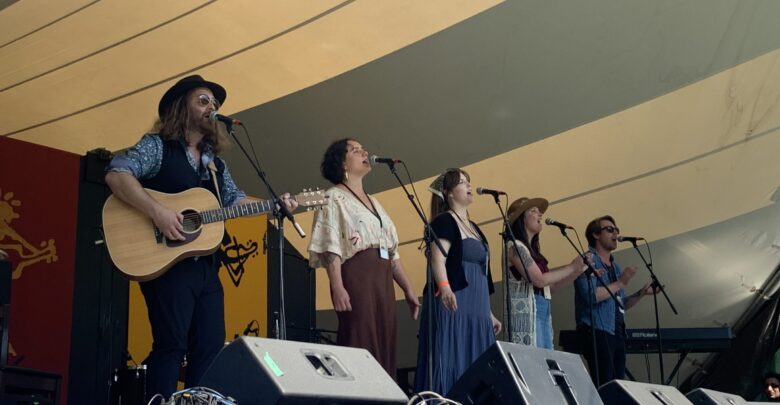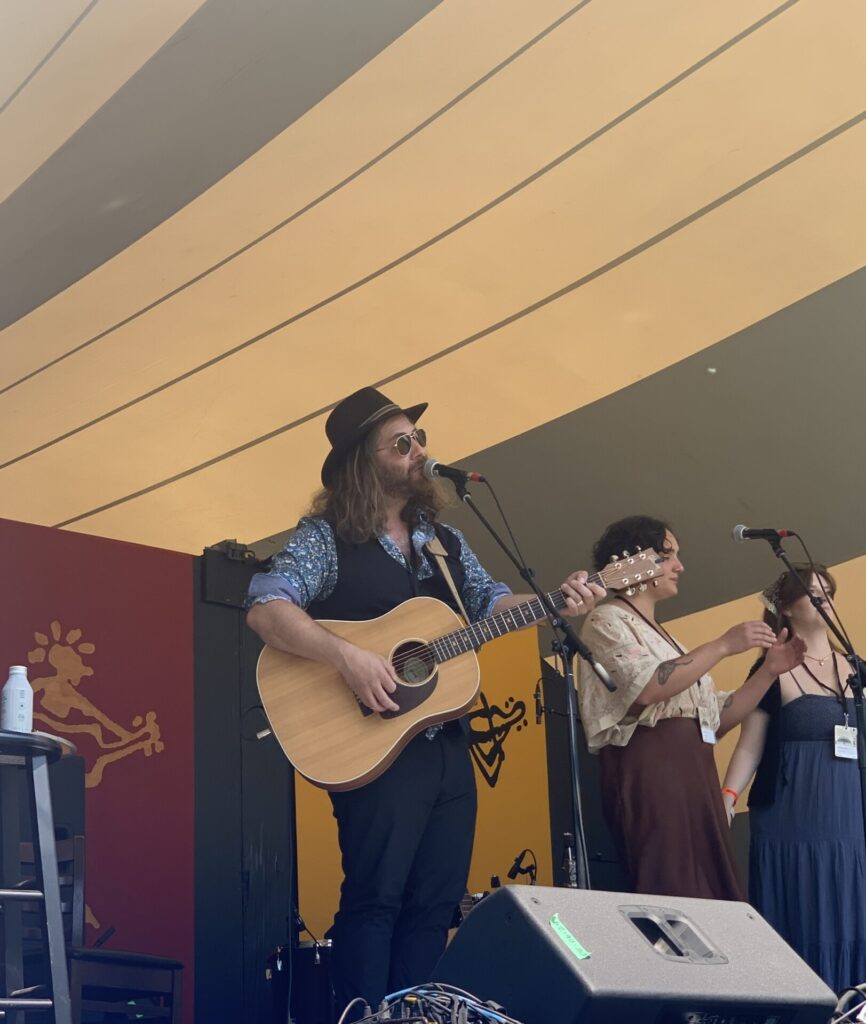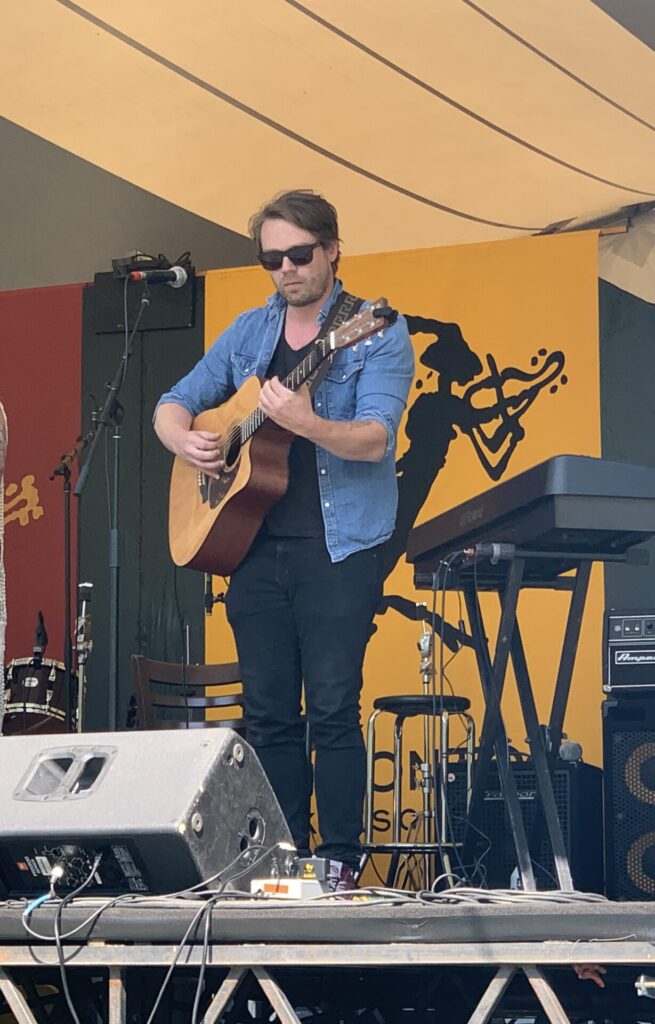School of Song’s John Hewitt and Ken Stead on music and mentoring
As the more established School of Song performers, Hewitt and Stead took on a mentorship role this year.
 Dylana Twittey
Dylana TwitteyEvery year the School of Song, organized by CJSR radio host Rhea March, brings four emerging, often Albertan, musical acts to the Edmonton Folk Music Festival (EFMF). Although local talent is still the focus, this year is slightly different.
John Hewitt and Ken Stead, two of the School of Song acts this year, are more established performers. Both have released several albums and have years of experience in the music industry. For this reason they took on a mentorship role to the newer performers Kaiya Kodie and Lily Monaghan.
“If you stay hungry, you’ll keep working. If you lose that drive, the art will probably suffer,” Hewitt says
Hewitt’s most recent creative outburst — in which he put out five albums in four years — was on full display this EFMF. He attributes this sheer volume of output to the COVID-19 pandemic and long hours on the road between tour spots. Both left Hewitt with nothing else to do but write. Especially considering Hewitt’s reputation for perpetual touring.
Due to the tiring nature of touring, Hewitt has recently slowed down. In past years he’s done nearly 150 shows in a year covering 20,000 miles annually. As anyone knows, there’s only so much time you can spend staring out the car window.
“Once I start touring, the way I write, oftentimes, is the people I meet, the people I talk to after a show, during a show, or just when [I’m] out and about doing things, I start to get inspired,” Hewitt said.
In August Hewitt is releasing two more albums. The Black Box Recordings are demos from his time living in Toronto in 2015. Postcards for the Afterlife, releasing August 27, is an EP inspired by two weeks on the road.
“We had a 13-hour drive between gigs. I booked the tour so I shot myself in the foot for that one,” Hewitt said. “I just started making mental notes of everything.”
Hewitt describes Postcards for the Afterlife as “very folky” with a couple “love gone wrong songs.”
While the difficulty of life on tour is often one of the biggest hurdles for artists, Hewitt gets through it by remembering the pay-off of playing for a crowd.
“As far as I’m concerned, if you stay hungry, you’ll keep working. If you lose that drive, the art will probably suffer.”
Stead credits EFMF as “the epicentre of where [his] musical career was started”
For Stead, returning to the EFMF is like coming home. Not only has he played the festival before, but he credits a performance by Eric Bibb — who also returned to this year’s EFMF — with changing his view of music.
“A few years later, I just started playing guitar. Since then, everything is just one step at a time, growing and growing. So this is really like the epicentre of where my musical career was started.”
When asked what he was most looking forward to, of course Stead listed seeing Bibb perform again. In addition to captivating performances, Stead also mentioned a less tangible but very relatable reason for coming back.
“Just being able to be back in this space like there’s a vibe … there’s an energy in this place,” Stead said. “The energy of this place kind of just fills you.”
While he recently returned from living in the Netherlands, Stead is very much a student of the Alberta music scene. March instilled in Stead that musicians shouldn’t be in competition with each other, but should lean on each other for support.
“I have, since the beginning, been lifted up by other musicians and people that are far better than I am with music. And so that encouragement and that belief in me from other people has played a huge role.”
Stead is grateful for the opportunity to act as a mentor with the School of Song.
“I look up to the other artists more than they know.”






